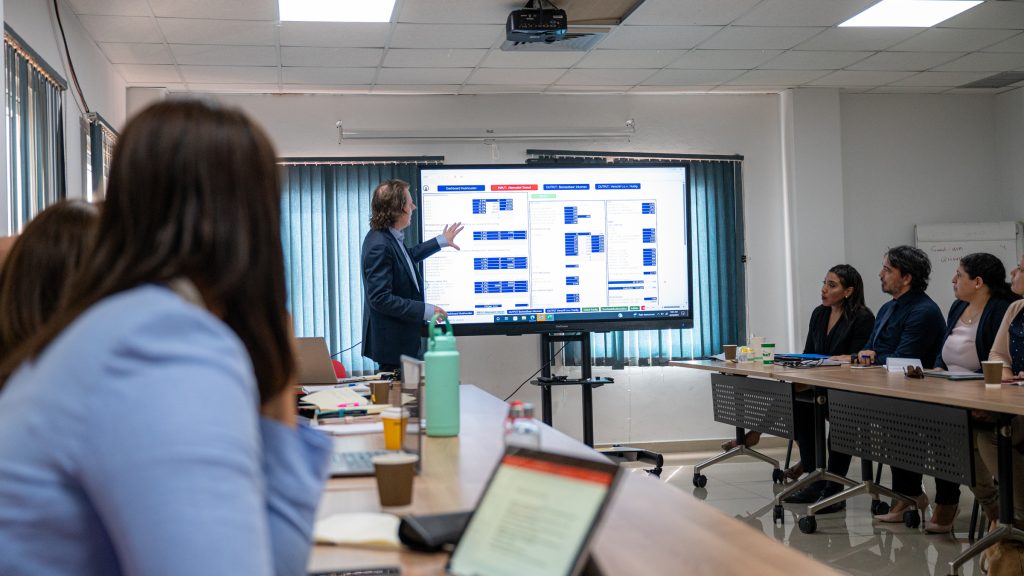Amsterdam Bureau for Economics (EBA) has presented a new purchasing power model for Aruba to the Council of Ministers of Aruba, the Parliament of Aruba, commercial parties and public stakeholders. Furthermore, EBA has provided training to the Department of Economic Affairs, Commerce and Industry of Aruba (DEACI), so that DEACI can apply and manage the purchasing power model itself.
EBA developed this purchasing power model on behalf of DEACI, so that the effect of fiscal and social measures on the purchasing power of households in Aruba can be studied.
The purchasing power model calculates the effects of changes in taxes, benefits, allowances, social security premiums and the minimum wage on the disposable income of a set of sample households. The purchasing power model is based on forecasts for inflation and scenarios for wage increases and indexation of social assistance, general old age pensions (AOV) and workplace pension benefits. This means that the purchasing power model is not only able to calculate the direct effects on the disposable income of households, but also to calculate the purchasing power effects over time.



